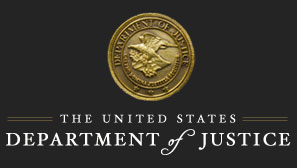 Former EPA-CID Special Agent Charged with Perjury and Obstruction of Justice
Former EPA-CID Special Agent Charged with Perjury and Obstruction of JusticeA former Special Agent with the Environmental Protection Agency (EPA), Criminal Investigation Division (CID) in Dallas, Texas, was charged yesterday with allegedly lying under oath and obstructing justice, announced Assistant Attorney General Lanny A. Breuer of the Justice Department's Criminal Division.
A two-count indictment returned yesterday in the Western District of Louisiana charges Keith Phillips, 61, of Kent, Texas, with obstruction of justice and perjury stemming from his sworn testimony in relation to a case currently pending in the Western District of Louisiana.
According to the indictment, from September 1996 to Dec. 14, 1999, Special Agent Phillips and a Special Agent from the FBI participated in a criminal investigation that led to the indictment of Hubert Vidrine Jr., and several others. The criminal charges against Vidrine were ultimately dismissed, and Vidrine, in turn, filed a civil lawsuit against the United States for malicious prosecution. During a deposition taken in the course of Vidrine's civil suit, Special Agent Phillips allegedly falsely testified that he did not have an affair with the FBI Special Agent, when, in fact, he did. The indictment alleges that it was material to the civil lawsuit to determine any potential motives of the criminal investigators in investigating and prosecuting the charges against Vidrine, and that Phillips committed perjury when he testified falsely about the affair and obstructed justice when he provided this false testimony. The indictment further alleges that he then contacted the FBI Special Agent to influence her not to disclose the existence of the affair.
If convicted, Phillips faces a maximum of 10 years in prison and a fine of $250,000 on the obstruction of justice count and five years in prison and a fine of $250,000 on the perjury count.
The case is being prosecuted by Marquest J. Meeks of the Criminal Division's Public Integrity Section. The case was investigated by the EPA Office of Inspector General.
An indictment is merely an allegation, and a defendant is presumed innocent until proven guilty beyond a reasonable doubt.
